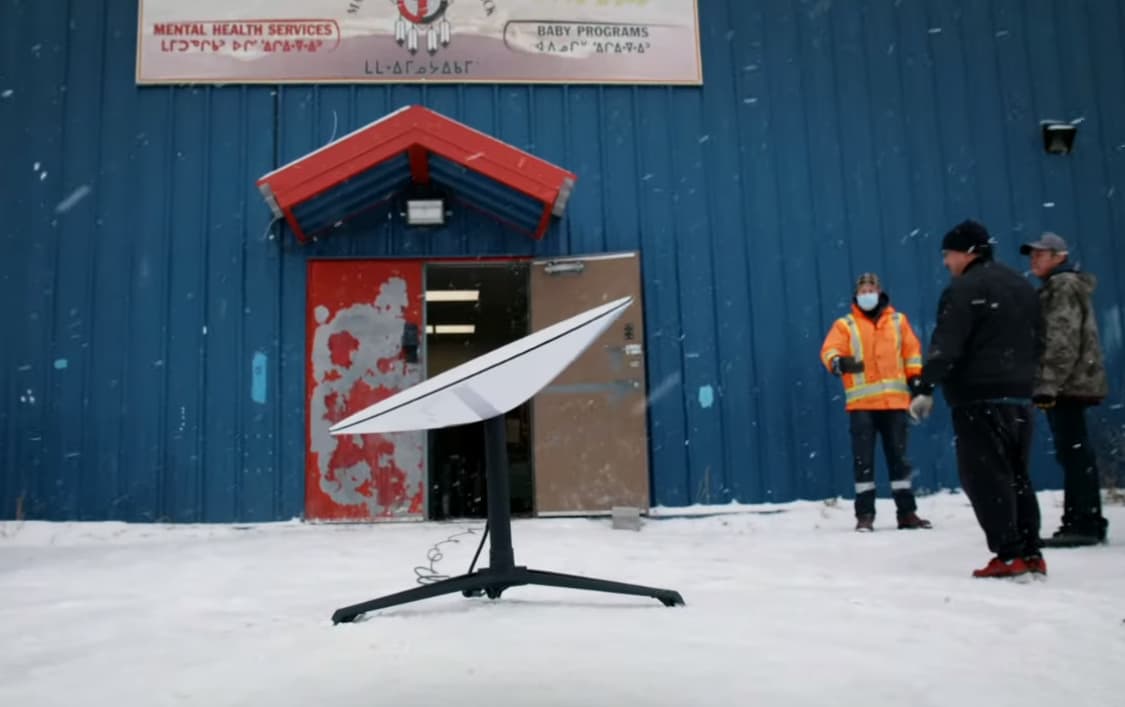Elon Musk’s SpaceX is in talks with the United Kingdom for the company’s Starlink satellite unit to potentially to earn funding as a part of the government’s new $6.9 billion internet infrastructure program, CNBC confirmed.
U.K. Minister for Digital Infrastructure Matt Warman recently met with Starlink leadership, a person familiar with the talks told CNBC, as a part of ongoing discussions with a number of technology communications companies for the ‘Project Gigabit’ plan rolled out on Friday.
Sky News first reported the talks, noting that U.K. Culture Secretary Oliver Dowden believes Starlink is one of the best options for delivering internet service to hard-to-reach areas across the country.
SpaceX did not respond to CNBC’s request for comment on the discussions, while the U.K. government declined to comment.
Starlink is the company’s capital-intensive project to build an interconnected internet network with thousands of satellites, known in the space industry as a constellation, designed to deliver high-speed internet to consumers anywhere on the planet.
The company has launched more than 1,200 satellites to orbit so far, and in October began rolling out early Starlink service in a public beta that now extends to customers in the U.S., Canada, the U.K., Germany and New Zealand – with service priced at $99 a month in the U.S.
The U.K. on Friday launched the first phase of Project Gigabit, which is the government’s $6.9 billion (£5 billion) program to upgrade the internet service of more than one million homes and businesses.
The first phase of the project will gather proposed solutions from companies with a variety of delivery methods, including satellites and other “high altitude platforms.”
Potential addition to FCC winnings
Project Gigabit represents the potential for SpaceX to add more government subsidy winnings for Starlink, as the company was awarded nearly $900 million in federal subsidies late last year under the Federal Communications Commission’s rural broadband auction.
The FCC awarded SpaceX with the fourth most funds in the $9.2 billion auction, with the subsidies to be distributed in monthly milestone payments over the next decade. But SpaceX’s award has been met with protest from other U.S. broadband providers, notably from DISH Network, with other internet service providers dismissing Starlink as a “science experiment” with “completely unproven technology.”
SpaceX has responded, telling the FCC that other providers’ complaints have “no valid basis” and come as a way to “hamstring a competitor.”
SpaceX has continued to expand Starlink’s service in the meantime, with the public beta gaining more than 10,000 users in its first three months. Musk’s company plans to expand Starlink service beyond homes, asking the FCC to widen its connectivity authorization to “moving vehicles,” so Starlink could be used with everything from aircraft to ships to large trucks.
NASA collision agreement
SpaceX also signed an agreement with NASA in January, the U.S. space agency revealed last week, to cooperate on how to avoid collisions with the company’s Starlink satellites.
With the company monthly adding more spacecraft to orbit, as its rockets launch 60 Starlink satellites at a time, NASA said that “increased interaction and partnership” was needed “to ensure continued safe” operations in orbit.
“NASA has agreed to not maneuver in the event of a potential conjunction to ensure the parties do not inadvertently maneuver into one another. NASA will operate on the basis that the autonomous maneuvering capability of the Starlink satellites will attempt to maneuver to avoid conjunction with NASA assets, and that NASA will maintain its planned trajectory unless otherwise informed by SpaceX,” the agreement said.
The agency also said it will work with SpaceX to “share technical expertise and lessons learned” to reduce the brightness of the satellites.
The company has previously announced changes to the satellites to decrease brightness, following complaints from astronomers given the growing presence of Starlink satellites in the sky.
